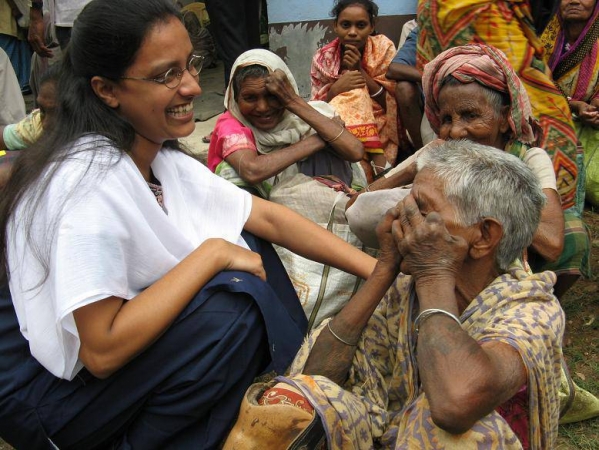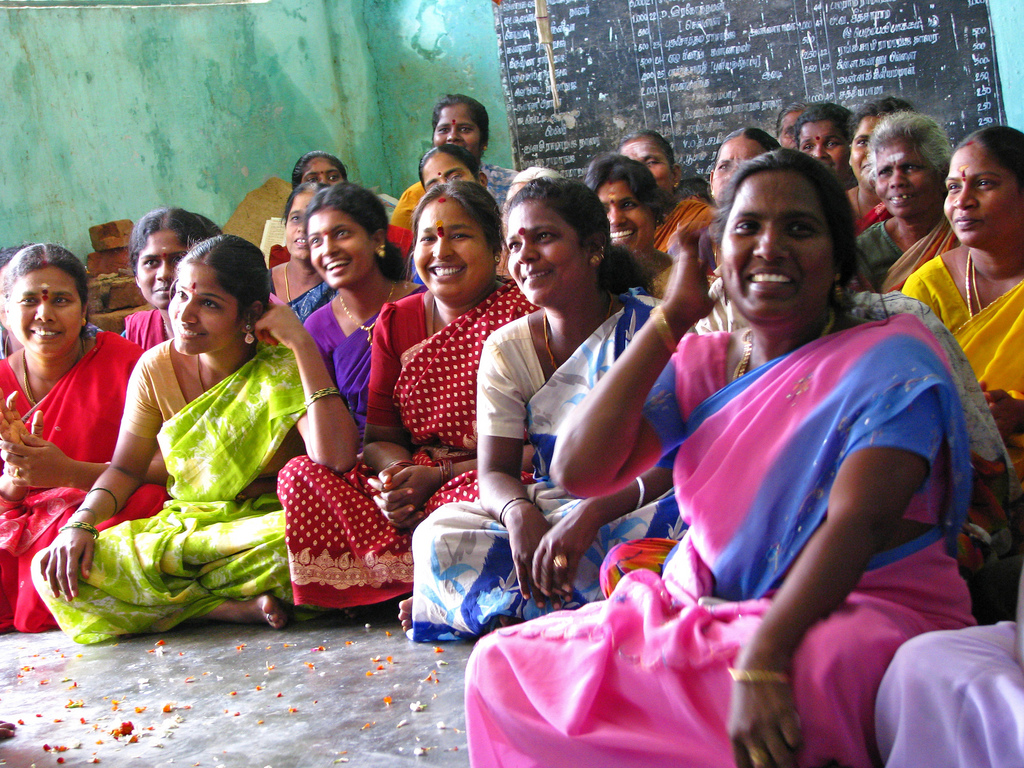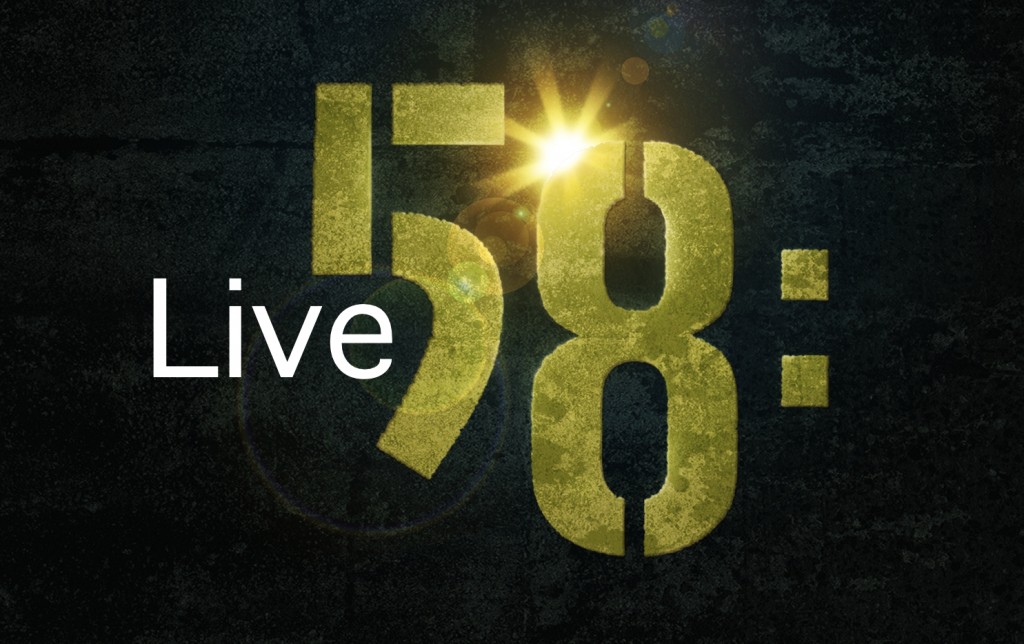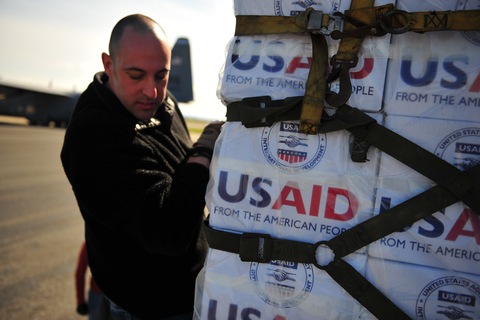The book you don't want to read but will love when you do … {Giveaway}
It was last minute when I thoughtlessly grabbed the book. We were headed out the door for our anniversary weekend, and I realized I’d forgotten to pack a book.
Honestly, I had been feeling a little lethargic in the reading-department, as none of my summer reads had gripped my attention. I had stared at the stack of books by my bed, like a woman standing in front of her full closet and lamenting, “I have nothing to wear!” I stood there feeling uninspired and inwardly lamented, “I have nothing to read!”
But, Thou shalt not leave on a weekend away, sans children, without a book!
And there it sat.
It had landed on my doorstep, literally. Touching Godliness by KP Yohannan. Sent from Gospel for Asia, for me to review. So, as we were zipping out the door, I tossed the book in my purse.
As we made the long trek over the mountain, Jeff and I talked, prayed, reminisced, dreamed a little about the future. But I couldn’t shake the vague aimless feeling settled like a heavy fog on my heart. It’s true, I was happily married. I did love my family. I did love God and want to serve Him. But something felt missing. Off a bit. We were already giving away money, we were living in community, we were spending time in the Word and prayer. I shrugged it off and stared out the window.
Upon arriving in Bend, we packed a picnic lunch and headed to the river to swim. Leaning back in low lawn chairs, we rested our feet in the icy cold water, welcome refreshment in the 90-degree heat. I opened my Bible to Psalm 42:
“As a deer pants for flowing streams, so pants my soul for you, O God. My soul thirsts for God, for the living God.”
Yes. That’s it. That’s how I felt. Thirsty for God but not sure how to find more of Him. By praying more? Fasting? Giving more money away? What? So after reading several psalms, I pulled out Touching Godliness.
Shame on me, but I wasn’t expecting much.
Another book on becoming godly? Awesome.
By KP Yohannan? Let me guess: Give your money away and stop being a selfish American. Awesome. I get it.
Boy was I surprised.
I’m half-tempted not to tell you what the book is about, because if I tell you I’m afraid you won’t read it. It’s no wonder he has a vague title, no subtitle, and a bare-bones description on the back cover. KP is no fool. But It’s not fair to call this a book review unless I tell you something about it:
It’s about submission.
There. Don’t say I didn’t warn you. It’s good. Really good. Really stinkin’ good and I devoured this book like nobody’s business and by lunch on Saturday I’d read the whole thing and silent tears had streaked down my cheek, under the sunglasses. I’d gazed blurry-eyed up at the clouds and prayed short, desperate prayers: “Lord, help me. Do this in me.”
Here are a few snippets:
“In the measure by which we open our life to Christ and bend our necks to the yoke, dying daily to our self-centeredness, independence, pride, and reasoning, and instead depend on God, in the same measure we will manifest His nature in our lives” (p. 72).
“I know many who follow the Lord and work hard, sacrifice much and go to the ends of the world. But the question remains for us all: Is it out of pride and self-assertion?” (p. 81)
(Of submission to leaders) “When our pastors speak into our lives, their words should not be taken lightly. If we listen to them and heed their warnings, our lives will be blessed. Obey them and be submissive. Don’t fall prey to the attitude of the modern church, which has lost the fear of God and His shepherds” (p. 110).
“What does it look like to respect your husband? …Around the globe, to correct your husband, especially in front of others, is disrespectful to him. Listening to and taking seriously his counsel shows respect. When others are present, not giving your husband any room in the conversation and being the one to answer every question that gets asked is disrespectful.” (p.114)
“When Jesus described Himself, the words He chose were “gentle and humble.” We, as his delegated authority, can only rightly represent Him if we too are humble.” (p. 184)
As I re-read these quotes I realize I’m not doing the book justice. So, I’d sum it all by saying this:
If you feel stuck somehow in your Christian life, like you are doing all that you know to do and still feel frustrated, distant, or unsettled; If you feel there is still some barrier between you and God, or you feel strained in your close relationships, if you feel like you aren’t quite where you wish you were in your relationship with Jesus … read this book.
You might not want to read it, but you’ll love it when you do.
{And…because I’d really love you to read this book, leave me a comment and we’ll pick one fabulous winner to receive a FREE copy! When you read the book the graphic below will come to life … Thank you so much for reading.}

Gift-Giving Guide 2012: Less Proven Approaches
Continuing our Gift-Giving Guide by Kris Zyp. Catch up with the first and second posts here. Enjoy!
Justice
Many may wish to pursue a goal of not simply providing poor with alleviation from the problems of health and poverty, but providing them with justice. Certainly, justice is a critical component of society for productive, healthy, free, and happy lives. Justice can be an ambiguous term, with different meanings depending on who you ask. In the broad, social meaning of the term justice, virtually every effort listed here contributes to greater justice, combating the injustice of poverty and inequality. But in a narrower sense of restraining specific individuals and organizations that are engaged in oppression against others, justice is being pursued in very focused way by certain organizations. One group that stands out is the International Justice Mission (IJM), who works in various countries to rescue and prosecute perpetrators.
However, there are some specific reasons why this approach lacks proven credibility in significantly benefiting the poor. First, the number of people rescued per dollar spent through IJM is very low compared to other projects that are recommended. If we look purely at rescues, the return on investment is disappointing, dozens of lives can be saved through bed nets for the cost of one rescue through IJM. However, the theory behind much of IJM’s work is that the impact of prosecuting one perpetrator will go far beyond that single case, and will be a deterrent or set a standard for many other situations. The impact of setting a standard of justice could in fact be very significant, and be the type of push that bring broader access to justice for many. Unfortunately, it is very difficult to assess this type of impact. Furthermore, many of the activities of IJM are at least partly focused on fighting corruption. However, studies on corruption have found surprisingly low levels of correlation with reduced economic growth. While donating to IJM could have some significant impacts, there is not enough evidence for this to be a very proven strategy.
Micro-finance
Microfinance has become very popular in recent decades. There are a couple of key advantages to microfinance. First, rather than simply being a gift, it empowers an individual to build a business and become more financially independent. This, at least in theory, enables someone to live beyond dependencies, rather than become more dependent. Second, microfinance loans are usually repaid, and donated money can be reloaned over and over. Donations can have a long lasting impact in empowering many individuals, rather than just being a one-time gift.
However, microfinance has come under a lot of criticism recently. In some areas microfinance has had been very helpful in lifting people out of poverty, but in other regions, microfinance initiatives have had little to no effect on poverty. Often microfinance can give a small business a small boost, but moving beyond a single person company to having employees, and creating significant economic activity, can be a very difficult hump to overcome. There are even unintended consequences; another recent study showed that microfinance can increase child labor, as parents attempt to take advantage of the temporary financial opportunity.
Because of these factors, microfinance has potential to make a big impact, but it is highly variable, and isn’t a solidly proven aid effort.
Aid Research
Research on what is effective in fighting poverty allows us to develop and fund more effective efforts in the future. This moves us towards a future where organizations are more efficient, we can make more informed decisions about what to fund (so posts like this one are better informed!), and where wasted efforts can be avoided.
My pick for an organization in this area is Innovations in Poverty Action. This is not a Christian organization, but they are doing remarkable work researching effective efforts, leaning heavily on randomized control trials. In fact many of recommendations in the guide are based on the fruit of research activity that has given us a much clearer idea of how to truly have a positive impact for the poor.
Giving Advocacy
Another type of charitable activity is the “marketing” aspect. Businesses are usually very keen to the important returns that are generated by good marketing. Likewise, investing in efforts to advocate for the poor can generate significant funding as well.
Currently one organization that we have been working with is Live 58. They have produced an excellent film (http://www.live58.org/about/
International Aid and Justice Advocacy
International aid from governments far exceeds private funding, and in many areas certainly represents the bulk of the effort. Advocacy efforts can have a big influence on our representatives’ willingness and commitment to continue these funds. In other sectors, such as energy, pharmaceutical, and defense companies on lobbying because the simple (and probably unfortunate) reality is that the evidence indicates these investments pay off in spades. Some studies suggest (http://www.npr.org/blogs/
{Is your head spinning? I know, it can feel overwhelming. Again, digest what you can and continue to stretch your heart and mind, allowing God to lead you. Bathe everything in prayer. Thanks for reading; I’m learning with you.}







